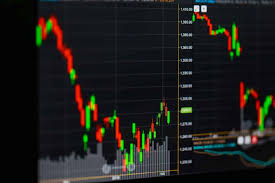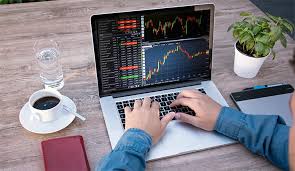

Foreign exchange, commonly known as Forex, is the largest financial market in the world. Opening a Forex trading account is a vital step toward entering this exciting trading environment. Whether you are a novice trader or have some experience in trading, knowing how to open a Forex account is indispensable for your trading journey. In this article, we will guide you through the entire process, highlighting essential points and useful tips. For those exploring the best platforms to use, take a look at how to open a forex trading account Top LATAM Forex Platforms.
Before diving into the details of opening an account, it’s important to have a solid understanding of the Forex market itself. Forex trading involves buying one currency while simultaneously selling another. Currencies are traded in pairs, such as EUR/USD (Euro to US Dollar). Price movements in these pairs are driven by various factors including economic indicators, political events, and market sentiment.
The first step to opening a Forex account is to choose a broker that meets your trading needs. Look for a broker that is regulated by recognized financial authorities, which helps ensure the security of your funds. Consider factors like trading conditions, spreads, commissions, and the types of trading accounts offered. Take the time to compare several brokers and read reviews from other traders.
Forex brokers typically offer various account types to cater to different trading styles and levels of experience. Here are some common types:
Once you have selected a broker and account type, it’s time to fill out the registration form. This typically involves providing personal information such as your name, email address, phone number, and sometimes your financial background. Make sure to provide accurate information to avoid any issues later.

Most brokers will require you to verify your identity (KYC process) to comply with regulatory requirements. You may need to submit documents such as a government-issued ID (passport or driver’s license) and proof of address (utility bill or bank statement). Ensure that these documents are clear and meet the broker’s specifications.
After successfully registering and verifying your identity, the next step is to fund your trading account. Brokers usually offer various funding options, including bank transfers, credit/debit cards, and e-wallets. Check the minimum deposit requirements and any associated fees for deposits. Make sure to choose a method that is convenient for you.
Most Forex brokers use trading platforms like MetaTrader 4 (MT4), MetaTrader 5 (MT5), or proprietary platforms. Once your account is funded, you will need to download the trading platform. The broker will provide you with detailed instructions on how to do this. Familiarize yourself with the platform’s features and functionalities.
With your account set up and funded, you are ready to start trading. However, it’s crucial to spend time developing a trading strategy, which involves analyzing market trends and making informed decisions. Many traders start with a demo account to practice their skills without risking real money. Take your time to learn and gain experience before transitioning to a live account.
Once you start trading, it’s essential to keep track of your trades and continuously monitor your performance. Reflect on your trading decisions, analyze wins and losses, and improve your strategies accordingly. The Forex market is ever-changing, so continuous learning and adapting are key to long-term success.
Opening a Forex trading account is the first step on your trading journey. By understanding the market, choosing a reliable broker, and being diligent in your approach, you can set yourself up for success. Remember that Forex trading involves risks, and it is important to trade responsibly.
By following the steps outlined in this guide, you can confidently open a Forex account and embark on your trading adventure. Happy trading!